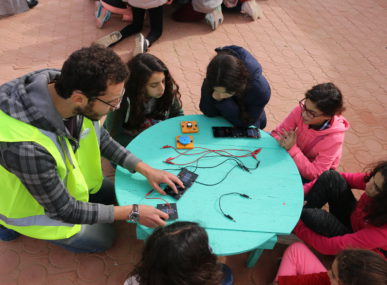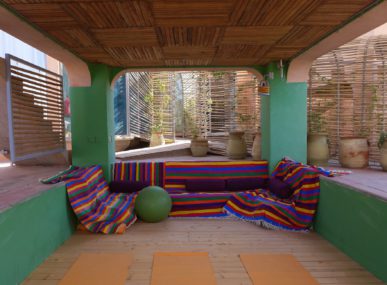This ethos of patience has held Khaled and Zakaria in good stead, given the enormity of their undertaking at Dar Jan. The couple toiled for a full 18 months before producing high-quality herbs. First, they needed to lay vital infrastructure like wells and irrigation channels, and then wait for their new plants to mature.
Today, Dar Jan sells a catalogue of organic dried herbs that includes lemongrass, lavender, rosemary, sweet marjoram and horsemint. The business also raises revenue through its handmade handicrafts of leather, wood and natural fabrics. “We are on the road to self-sustainability,” Khaled said.
Dar Jan is also developing a strong reputation as a venue for cultural collaboration. Artists are welcome to exchange skills, and Dar Jan runs monthly workshops for children who want to experience life closer to nature. By 2020, Khaled and Zakaria want to implement a knowledge sharing program between local Bedouins and visiting artists.





